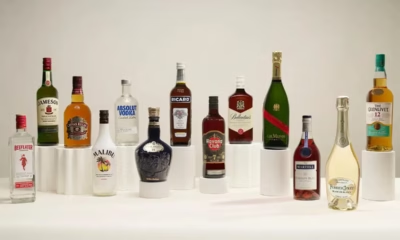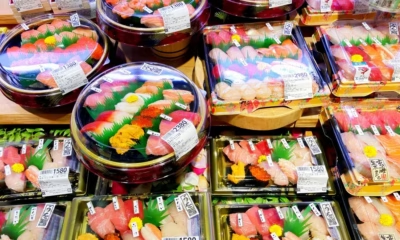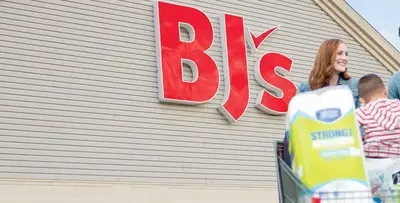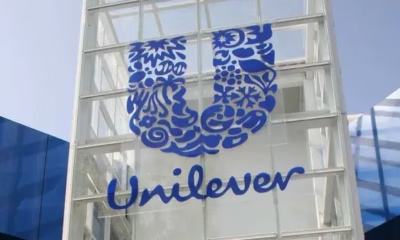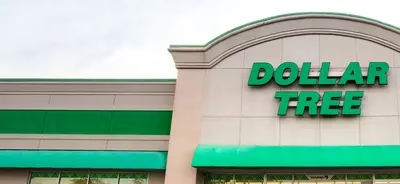FMCG
Nestlé reduces full-year sales forecast, but CEO asserts growth is back
Nestle SA lowered its sales outlook for the year as consumers balk at price increases on branded food, water and pet-care products

Overview of Recent FMCG Brand Transactions
FMCG giant Reckitt revealed it was to offload its homecare and nutrition brands in a bid to refocus on its “core Powerbrands” and ensure the “best long-term opportunity for growth.” This move reflects a broader trend in the industry, where several major manufacturers have sought to offload brands recently. Below, we round up significant FMCG mergers, acquisitions, and portfolio reshuffles that are reshaping the grocery sector landscape.
Reckitt’s Strategic Shift
Dettol owner Reckitt Benckiser has confirmed it will sell its brands in its home care and nutrition division to concentrate on its ‘power brands’. The company plans to offload essential home brands such as Air Wick, Calgon, and Cillit Bang, which posted a net revenue of £1.9 billion in 2023, by the end of 2025. Reckitt will also find new owners for its nutritional arm, including the infant formula brand Mead Johnson, Enfamil, and Nutramigen, though no timeline has been provided for this transaction.
Instead, Reckitt will prioritize its “high-growth and high-margin Powerbrands,” including Strepsils, Gaviscon, Nurofen, Lysol, Dettol, Finish, Vanish, Durex, and Veet. The updated Powerbrands portfolio is expected to incorporate “important local hero brands” such as Lemsip and Airbourne. This strategic shift follows a series of setbacks for Reckitt, including a £7 billion drop in shares and financial losses due to a tornado that impacted its Mount Vernon warehouse.
Diageo’s Portfolio Adjustments
On July 19, Diageo agreed to sell Pampero rum to Italian spirits company Gruppo Montenegro, allowing the drinks giant to “concentrate on our portfolio’s core areas of strength.” Just weeks prior, the Guinness owner confirmed the sale of fruit-flavored liqueur brand Safari to Portuguese beverage-alcohol company Casa Redondo. The shake-up was anticipated, as Diageo had hinted at exploring the sale of various non-core spirit brands.
Pernod Ricard’s Wine Division Sale
Pernod Ricard has confirmed it will sell most of its wine units to Australia’s Accolade Wines, refocusing on its portfolio of spirit brands. The London-listed company, known for brands like Campo Viejo and Jacob’s Creek, will divest several wine brands from New Zealand, Australia, and Spain to drive growth in its remaining brands. However, Pernod Ricard will retain ownership of its champagne brands and select wines from the U.S., France, Argentina, and China.
Carlsberg and Britvic Merger
Carlsberg has agreed to acquire Robinsons manufacturer Britvic in a £3.3 billion deal, merging to form a single integrated beverage company in the UK called Carlsberg Britvic. This merger follows Britvic declining two previous bids, indicating a significant consolidation in the beverage sector. Carlsberg’s group CEO Jacob Aarup-Andersen expressed excitement about expanding their partnership with PepsiCo, emphasizing the long-term opportunities for both companies.
Chapel Down’s Strategic Review
The UK’s largest winemaker, Chapel Down, is considering a sale as part of a strategic review to fund its growth plans. The company is exploring various funding options, including selling the business or seeking investment from new or existing shareholders, with ambitions to achieve double-digit sales growth in 2024.
Unilever’s Ice Cream Division Challenges
Earlier this year, Unilever announced plans to split its ice cream division from its overall portfolio to create a “leaner and more accountable” business. However, analysts indicated that Unilever is struggling to offload its multi-billion-pound ice cream division, which includes brands like Magnum, Ben & Jerry’s, and Wall’s, valued at over £15 billion. To address this challenge, Unilever may retain a significant minority stake, although experts believe buyers might need to collaborate to place bids on these iconic brands.
Conclusion
These recent developments in the FMCG sector highlight the ongoing evolution of brand portfolios as companies adjust their focus and strategies to maximize growth opportunities. As these major players navigate their respective challenges, the grocery sector landscape continues to reshape itself through mergers, acquisitions, and strategic divestments.

